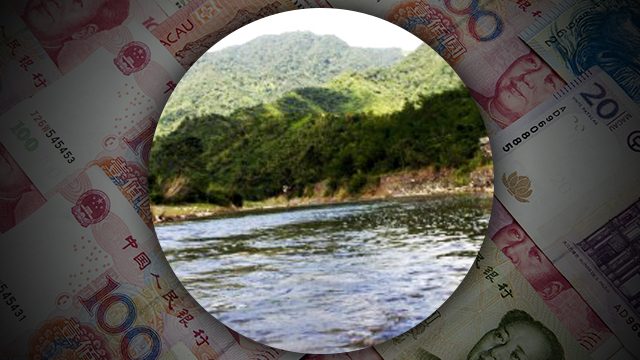SUMMARY
This is AI generated summarization, which may have errors. For context, always refer to the full article.

MANILA, Philippines – The bidding for the P12.2-billion Kaliwa Dam looks rigged in favor of China Energy Engineering Corporation Limited, said the Commission on Audit (COA).
“Only the China Energy Engineering Corporation Limited qualified which is questionable considering that the two [other] bidders were disqualified in the 1st and 2nd stages of the procurement process due to the seemingly intentional purpose of the bidders not to comply with the TWG (technical working group) requirements,” COA said in an audit observation memorandum (AOM) dated June 10.
The AOM was issued to the Metropolitan Waterworks and Sewerage System (MWSS), which handled the procurement for the engineering, design, and construction of the Kaliwa Dam. The MWSS later awarded the contract to Beijing-run China Energy.
The Export-Import Bank of China (China Eximbank) agreed to lend the Philippine government $211,214,646.54 (P11.05 billion) for the project, with the remaining cost to be shouldered by the government.
But even this loan should be ineffective, state auditors said, “due to the non-submission of the documents as required under the loan agreement.”
There is a pending petition before the Supreme Court that seeks to invalidate the loan agreement for allegedly unconstitutional terms. (READ: Made in China: Loan terms with waivers, shrouded in secrecy)
Rigged?
Aside from China Energy, the two other firms which bid for the contract were Power Construction Corporation of China Limited (Power China) and Consortium of Guangdong Foreign Construction.
The MWSS’ TWG was tasked by the Department of Finance to vet the contractors.
Guangdong failed the eligibility requirements of the TWG, even though it was previously shortlisted for the bid, meaning it passed the pre-qualification requirements of the MWSS.
“Considering the contractors have proven work experiences and allegedly have projects conducted/completed in the Philippines as confirmed by the TWG, the aforementioned documents should have been submitted and made available,” COA said.
When it came down to China Energy and Power China, the latter’s bid was “surprisingly higher than the approved budget for the contract.” Power China was therefore disqualified, with China Energy being declared as having the lowest calculated bid.
Power China’s bid was P13.04 billion, or P842.7 million (6.91%) higher than the budget.
“This raises doubt on the bid of the Power Construction Corporation of China Limited since the nominated bidders were already informed in the bid documents and in the Invitation to Bid for the project of the amount of the Approved Budget for the Contract (ABC) and that ‘Bids received in excess of the ABC shall be automatically rejected at bid opening,'” state auditors said.
“In summary, it can be deduced that the two bidders/contractors were included merely to comply with the at least 3 bidders requirement as stated under the procurement law. Likewise, the procurement of the project is with the semblance of a competitive bidding when in reality, it is a negotiated contract from the inception of the bidding process.”
Loan ineffective?
The notice of award was issued to China Energy on December 11, 2018, but the notice to proceed has yet to be issued pending the submission of required documents such as an environmental compliance certificate and Bangko Sentral ng Pilipinas letter of guarantee.
“The validity of the loan agreement between the MWSS and China Eximbank remained ineffective due to the non-submission of the documents as required under the loan agreement,” COA said.
State auditors also flagged the late submission of other documents for the project. Based on COA rules, contracts and supporting documents must be submitted 5 days after execution of the contract. For the Kaliwa Dam, the requirements were submitted after 135 days.
COA recommended that the MWSS demand an explanation from the TWG, and to hold officials responsible for the irregularities in the bidding.
“Management shall ensure strict compliance by the contractor of the provisions of the contract agreement with the China Energy Engineering Corporation Limited before the conduct of any preliminary project activities,” state auditors said.
The AOM, issued internally, will give the MWSS time to respond to the findings. The MWSS’ response, whether auditors are satisfied or not, will be included in the 2019 audit report which will be released publicly. – Rappler.com
P52.31 = $1
Add a comment
How does this make you feel?
There are no comments yet. Add your comment to start the conversation.